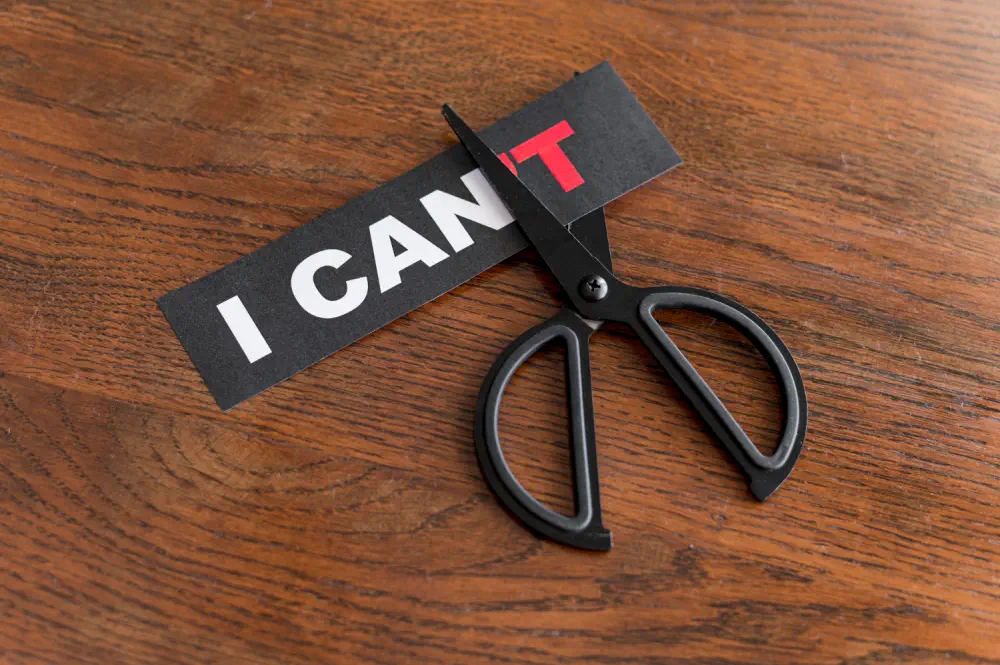We offer medical detox and multiple addiction treatment options in our
luxury treatment centres in Port Hope, Cobourg, and Ottawa.
How Can Dependence Develop? Ozempic vs Semaglutide
Here's something that might surprise you. Many patients walk out of their doctor's office with an Ozempic prescription, completely unaware that they're receiving the exact same medication as someone prescribed "semaglutide." It's like getting Advil and ibuprofen—same drug, different name on the bottle.
This confusion is just the beginning. As these GLP-1 medications become household names for diabetes management and weight loss, patients and their families are asking increasingly important questions. "Will I become dependent on this?" "Is this safe for long-term use?" "What happens if I need to stop?"
Ozempic and Semaglutide don't work like recreational drugs that hijack your brain's reward system. They won't make you crave them or seek them out compulsively. But here's what many people don't realize: your body can develop a very real physical dependence on these medications when they're used for chronic medical conditions.
Key Takeaways
- Medical dependence on Semaglutide is not the same as addiction—your body needs the medication to manage a chronic condition, but you won't develop cravings or compulsive use patterns
- Ozempic and Semaglutide contain the same active ingredient; comparing them is like comparing Kleenex to facial tissue
- Most side effects (nausea, vomiting, diarrhea) are temporary and improve within 4-6 weeks as your body adjusts to the medication
- Problematic use patterns include hiding side effects from doctors, obtaining medication from multiple sources, or continuing use against medical advice
What's the Difference Between Ozempic and Semaglutide?

Medication Basics
Let's clear this up right away. Semaglutide is the actual medication—the active ingredient doing all the work in your body. Think of it as the recipe.
Ozempic is simply one brand name that contains semaglutide. Novo Nordisk manufactures it specifically for people with Type 2 diabetes. But here's where it gets interesting: that same company also makes Wegovy, which contains the exact same semaglutide but at different doses for weight management. There's also Rybelsus, an oral version of semaglutide that you swallow instead of inject.
So when people debate Ozempic vs Semaglutide, they're essentially comparing a brand name to its generic ingredient. It's like asking about the difference between Kleenex and facial tissue.
All these medications belong to a class called GLP-1 receptor agonists. That's a fancy way of saying they mimic hormones your body naturally produces in your intestines after you eat.
How Ozempic and Semaglutide Function
Your intestines are smarter than you might think. When food arrives, special cells release hormones called incretins that send messages throughout your body. These chemical messengers tell your pancreas, "Hey, food's here—time to release insulin." They also whisper to your brain, "You're getting full now."
Semaglutide hijacks this natural conversation. It acts like those incretin hormones, but it sticks around much longer than the real thing. While your body's natural hormones disappear within minutes, semaglutide keeps working for days.
This extended action creates several effects. Your pancreas gets a steady signal to produce insulin when your blood sugar rises. Your stomach slows down its emptying process, keeping food around longer so you feel satisfied. Your brain receives stronger satiety signals, reducing those constant thoughts about your next meal.
Doctors primarily prescribe these medications for Type 2 diabetes because they help control blood sugar without causing dangerous drops. But many patients notice significant weight loss as a side effect, which has led to widespread off-label prescribing for weight management.
The medication doesn't change your fundamental relationship with food or create new cravings. Instead, it amplifies signals your body already uses to regulate hunger and fullness.
When Does Physical Dependence Develop?

Think about it this way. If you take blood pressure medication for years and then suddenly stop, your blood pressure will spike back up. It's that the medication is actively working to keep your blood pressure in a healthy range. You're physically dependent on it to maintain normal blood pressure, but you're not addicted to it. You don't crave it, think about it constantly, or engage in risky behaviour to get it.
The same principle applies to many chronic disease medications. People with diabetes depend on insulin to stay alive. Heart patients depend on their cardiac medications. This is medical dependence—your body needs the medication to function properly.
"Is Ozempic addictive?" This question usually stems from misunderstanding what medical dependence actually means. Patients worry because they know they'll need to continue their medication long-term. But needing something for your health isn't the same as being addicted to it.
Real addiction involves compulsive use despite harmful consequences. It includes cravings, loss of control, and continued use even when the substance causes problems in your life. Medical dependence, on the other hand, improves your life by managing a chronic condition.
Signs Your Body Has Adapted to Treatment
Your body is remarkably good at adjusting to medications over time. With semaglutide, this adaptation happens gradually and predictably.
The most obvious sign appears when you stop the medication. Your blood sugar levels will return to where they were before treatment began. This isn't withdrawal in the addiction sense—it's simply your underlying medical condition reasserting itself. Your pancreas goes back to its previous insulin production patterns. Your appetite regulation returns to its pre-treatment state.
Weight changes often reverse as well. Many patients notice their appetite increases again within weeks of stopping. The medication's effects on gastric emptying fade, so food moves through your system faster. Those satiety signals that helped you feel full become weaker.
Semaglutide can lead to dependency when used long-term for medical management, but this dependency is therapeutic, not problematic. Your endocrine system has adjusted to the medication's presence. Remove it, and the system needs time to readjust—if it can at all.
What Are the Side Effects You Should Know About?
Common Gastrointestinal Effects
Let's be honest about what you're likely to experience. Ozempic side effects most commonly hit your digestive system, and nausea tops the list. Clinical trials show that 15 to 23% of patients deal with nausea, especially during the first few weeks of treatment.
Your stomach isn't trying to punish you. The medication slows down how quickly food leaves your stomach, which can create that queasy, overfull feeling. Think of it like a traffic jam in your digestive tract—everything backs up temporarily while your system adjusts.
Vomiting affects about 5 to 9% of users, typically those on higher doses. It's unpleasant, but it usually signals that your body is still adapting to the medication's effects. Most patients find that starting with a lower dose and gradually increasing helps minimize this problem.
Diarrhea strikes 8 to 14% of patients. Your intestines are getting mixed signals about how fast to process food, leading to loose or frequent stools. This side effect tends to be more common in the first month of treatment.
Here's some good news: side effects of Ozempic typically decrease over time as your body adjusts. Most patients see significant improvement in nausea and digestive issues within 4 to 6 weeks. Your system learns to work with the medication rather than fight against it.
Serious Health Risks Requiring Attention
While most people tolerate semaglutide well, some rare but serious complications demand immediate attention.
Pancreatitis represents the most concerning risk. Less than 1% of patients in clinical trials developed this dangerous inflammation of the pancreas, but when it happens, it's a medical emergency. The pain typically starts suddenly and feels like someone is stabbing you in the upper abdomen with a hot knife.
Gastroparesis, or stomach paralysis, can develop in rare cases. Your stomach muscles become so weak they can't push food forward normally. Food just sits there, sometimes for hours, causing severe bloating, nausea, and pain.
Your kidneys can suffer if you become severely dehydrated from persistent vomiting or diarrhea. These organs need adequate fluid to filter waste properly, and Semaglutide side effects that cause fluid loss can lead to serious kidney damage if left untreated.
Gallbladder problems represent another negative effect of Semaglutide to watch for. Rapid weight loss increases your risk of developing gallstones, which can block bile ducts and cause excruciating pain that doubles you over.
Critical Warning Signs Requiring Immediate Medical Attention:
- Severe abdominal pain spreading to the back (possible pancreatitis)
- Persistent vomiting causing dehydration
- Severe bloating or difficulty swallowing
- Signs of allergic reaction (swelling, breathing difficulty)
Don't wait to see if these symptoms improve on their own. Call your doctor immediately or head to the emergency room.
Medical Dependence and Addiction Risk

Medical dependence develops when your body requires a medication to maintain normal function for a diagnosed condition. You take semaglutide because your pancreas doesn't produce enough insulin or your blood sugar runs too high. Stop the medication, and your underlying medical problem returns.
Addiction operates differently. It hijacks your brain's reward system, creating compulsive use despite harmful consequences. People with addiction often hide their use, escalate doses without medical guidance, and continue using even when it damages their health, relationships, or responsibilities.
Here's how medical dependence on semaglutide compares to substance addiction:
| Factor | Medical Dependence (Semaglutide) | Substance Addiction |
|---|---|---|
| Purpose | Chronic disease management | Non-medical use |
| Medical Supervision | Always required | Often avoided |
| Stopping Pattern | Gradual with doctor guidance | Repeated failed attempts |
| When Stopped | Medical condition returns | Withdrawal syndrome |
| Dosing | Stable, medically determined | User-controlled escalation |
The differences become clearer when you look at real-world behaviour patterns. Patients with medical dependence follow their prescribed dosing schedule. They work with their healthcare team to monitor progress and adjust treatment as needed. If side effects become problematic, they discuss alternatives with their doctor rather than simply increasing the dose.
People struggling with addiction behave differently. They might seek multiple prescriptions from different doctors, use higher doses than recommended, or obtain medications through non-medical channels. When problems arise, they often hide them rather than seek help.
Your relationship with the medication tells the story. Do you take it because your doctor prescribed it for a medical condition? Do you follow the recommended dosing schedule? Do you discuss concerns openly with your healthcare provider? These patterns suggest healthy medical dependence.
When Should You Be Concerned About Your Medication Use?
Warning Signs of Problematic Patterns
Most patients use semaglutide appropriately under medical supervision. But certain behaviours signal that the relationship with medication has become unhealthy.
Continuing treatment despite serious side effects represents a major warning sign. Obtaining medication without proper supervision—from multiple doctors, online sources, or using someone else's prescription—crosses important safety boundaries. When medication becomes misused, debates about Ozempic vs Semaglutide become meaningless.
Psychological Concerns to Monitor
Fear-based decision-making often drives problematic use. Some patients continue medication despite health risks because they're terrified of weight regain or losing the medication's effects.
Red Flags for Concerning Medication Relationships:
- Requesting higher doses than medically recommended
- Hiding side effects from healthcare providers
- Obtaining medication from multiple sources
- Continuing use against medical advice
If these warning signs apply to your situation, have an honest conversation with a healthcare provider about your relationship with the medication.
When Should You Seek Help?

If you recognize concerning patterns in your relationship with diabetes or weight management medications, don't wait for the situation to worsen. Professional guidance can help you distinguish between healthy medical dependence and problematic use.
The Canadian Centre for Addictions provides comprehensive assessment and support for various dependence concerns, including medication-related issues. Our experienced team understands that dependence can develop in many forms, and we approach each situation with the expertise and sensitivity it deserves.
Contact us for confidential evaluation and personalized treatment planning. Taking that first step toward understanding your relationship with medication is a sign of strength, not weakness.
FAQ
Is there any difference between Ozempic and Semaglutide?
No. Semaglutide is the active ingredient, and Ozempic is one brand name containing it. They're the same medication.
Will I become addicted to Semaglutide if I use it long-term?
No. You may develop medical dependence (your body needs it to manage your condition), but this isn't addiction. You won't crave it or engage in drug-seeking behaviour.
What should I do if I experience severe side effects?
Contact your doctor immediately, especially for severe abdominal pain, persistent vomiting, or breathing difficulties. Don't stop the medication without medical supervision.
Can I stop taking Semaglutide whenever I want?
You should always consult your doctor before stopping. Your blood sugar and appetite will return to pre-treatment levels, requiring careful management during the transition.
How do I know if my medication use has become problematic?
Warning signs include continuing use despite serious side effects, obtaining medication from multiple sources, or feeling unable to stop even when medically advised to do so.






